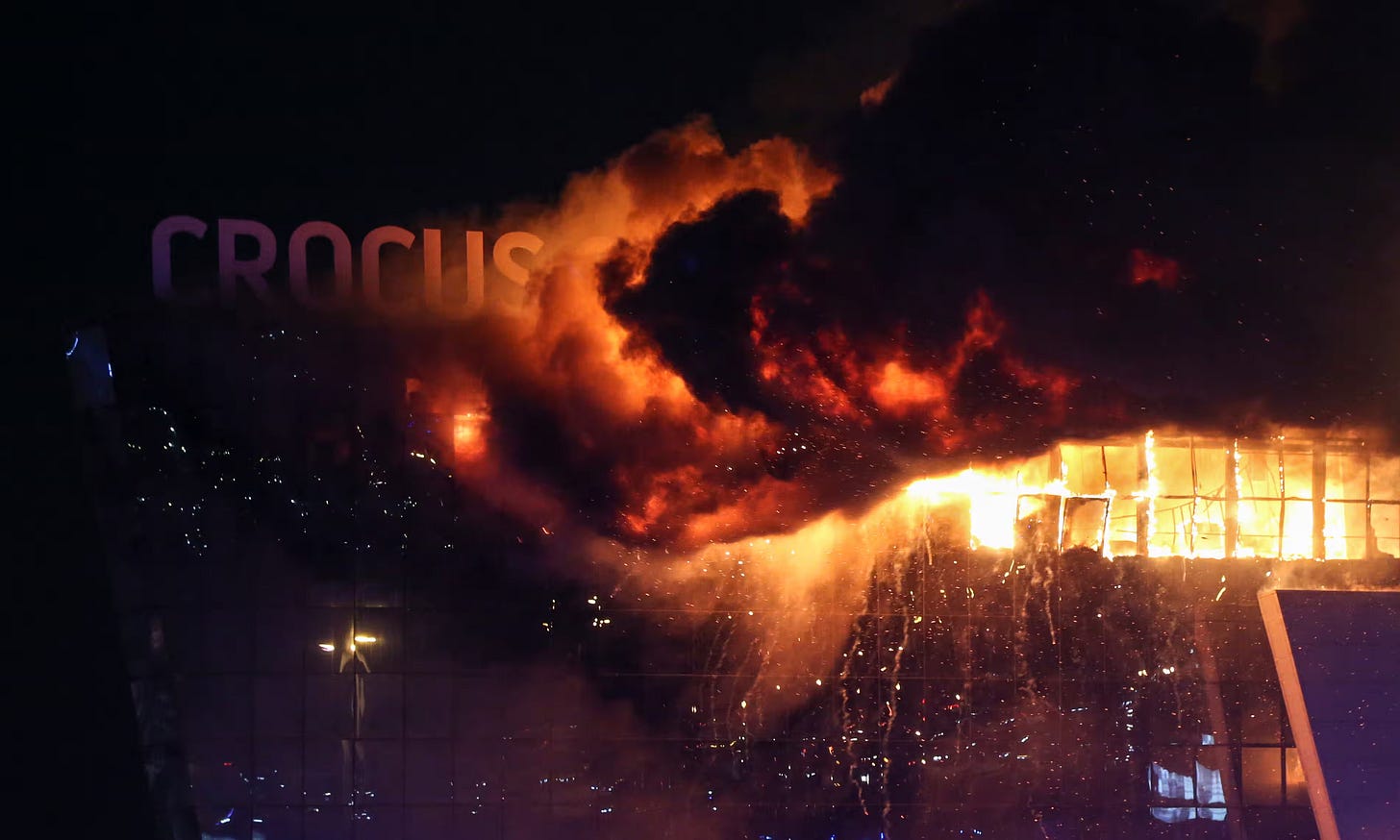The ISKP Thrives in a Disunited World
The Islamic State Khorasan Province's (ISKP) latest attack on Moscow demonstrates the growing threat it poses to global security. But can the world rise to the challenge?
Moscow’s Crocus City Hall set ablaze by ISKP gunmen on March 22. Image source
On Friday, March 22, four men entered Moscow's Crocus City Hall during a rock concert with around 6,000 attendees. The men opened fire on the crowd, killing 137 people and injuring more than 100 others before setting fire to the roof. Russian authorities arrested the perpetrators – all men of Central Asian descent – some 14 hours later. Each of the four severely beaten suspects – one of whom was in a wheelchair and another appeared to be missing an ear - was charged with committing an act of terrorism in a Russian court on Monday.
The attack – Russia's deadliest in decades – was quickly claimed by the Islamic State Khorasan Province (ISKP), an Afghan-based terror group of rising global prominence. Unlike other Islamic State-aligned groups that gained and lost vast amounts of territory over the past decade, the ISKP operates from unknown locations while running an enormous media operation that reaches vast numbers of people in multiple languages. If this latest attack and threats made by the group are any indication, the ISKP may be the world's most potent terrorist threat today and also one that the world is ill-equipped to handle.
Keep reading with a 7-day free trial
Subscribe to Between the Lines to keep reading this post and get 7 days of free access to the full post archives.





